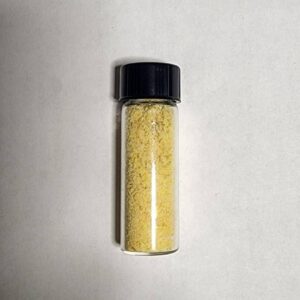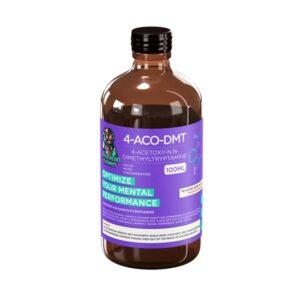Proscaline Microdose (Mescaline Analogue)
Proscaline is a synthetic psychedelic compound structurally related to mescaline, a naturally occurring psychedelic found in certain cacti. As a mescaline analogue, proscaline shares similar chemical properties and is known for its hallucinogenic effects.
Chemical Structure and Properties:
Proscaline is classified as a substituted phenethylamine, specifically 4-propoxy-3,5-dimethoxyphenethylamine. This structure is akin to mescaline, differing primarily by the presence of a propoxy group at the 4-position of the aromatic ring. Such structural similarities suggest that proscaline may interact with serotonin receptors in the brain, potentially leading to altered perception and consciousness.
Effects and Dosage:
According to Alexander Shulgin’s “PiHKAL” (Phenethylamines I Have Known and Loved), a dose of 30–60 mg of proscaline can produce effects lasting 8–12 hours. These effects are expected to be similar to those of mescaline, including visual and auditory hallucinations, altered thought processes, and changes in sensory perception.
Microdosing Proscaline:
Microdosing involves consuming sub-threshold amounts of a psychedelic substance, typically around 1/10th to 1/20th of a standard recreational dose. The goal is to experience subtle enhancements in mood, creativity, and cognitive function without significant perceptual changes. While there is limited research on microdosing proscaline specifically, studies on other psychedelics suggest potential benefits, including improved mood and cognitive performance.
Legal Status:
The legal status of proscaline varies by jurisdiction. In the United Kingdom, it is classified as a Class A controlled substance. In the United States, proscaline is not directly scheduled under the Controlled Substances Act. However, due to its structural similarities to mescaline, a Schedule I substance, it could potentially be subject to the same control measures and penalties under the Federal Analogue Act.
Safety and Considerations:
As with any psychedelic substance, caution is advised. Potential risks include psychological distress, especially in individuals with a history of mental health issues. Due to the limited research on proscaline, its safety profile is not well-established. Individuals considering its use should be aware of the legal implications and potential health risks.
Conclusion:
Proscaline is a mescaline analogue with psychedelic properties. While it shares structural similarities with mescaline, its effects, safety profile, and legal status are not well-documented. Individuals interested in proscaline should exercise caution and consult with a healthcare professional before use.




Reviews
There are no reviews yet.